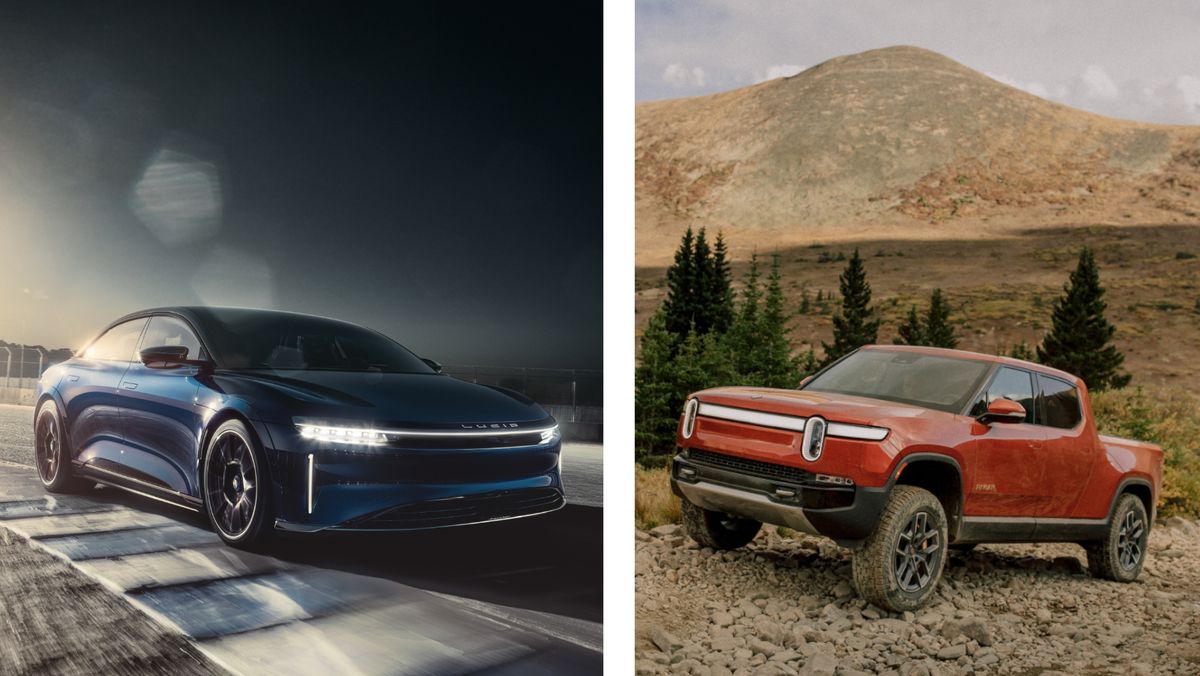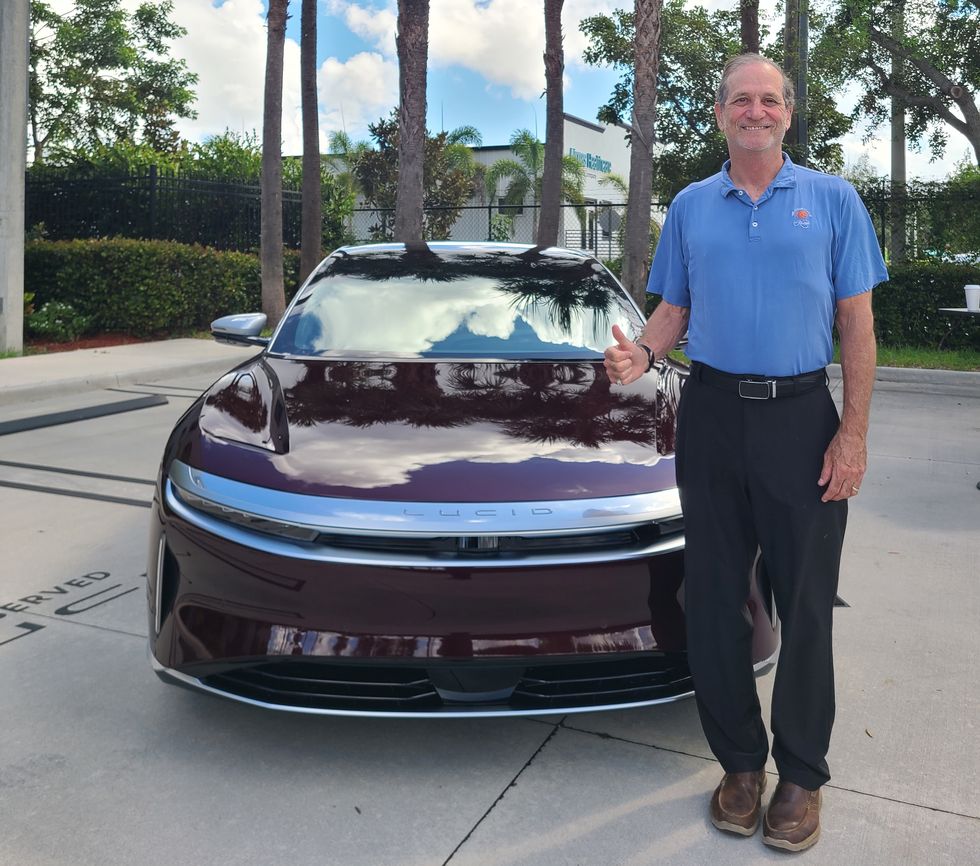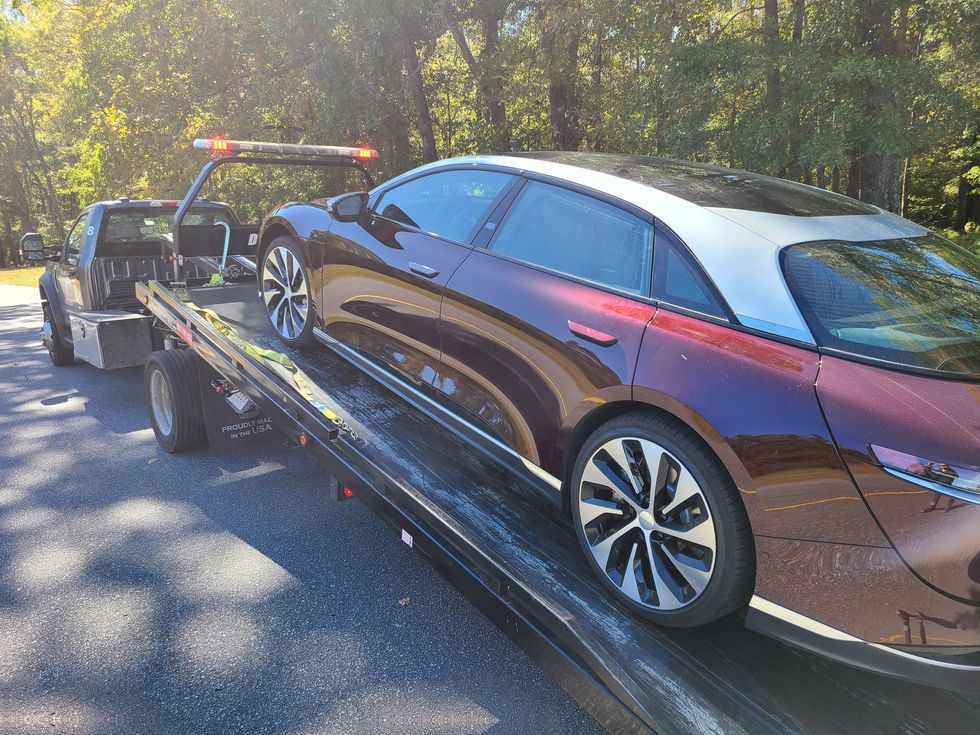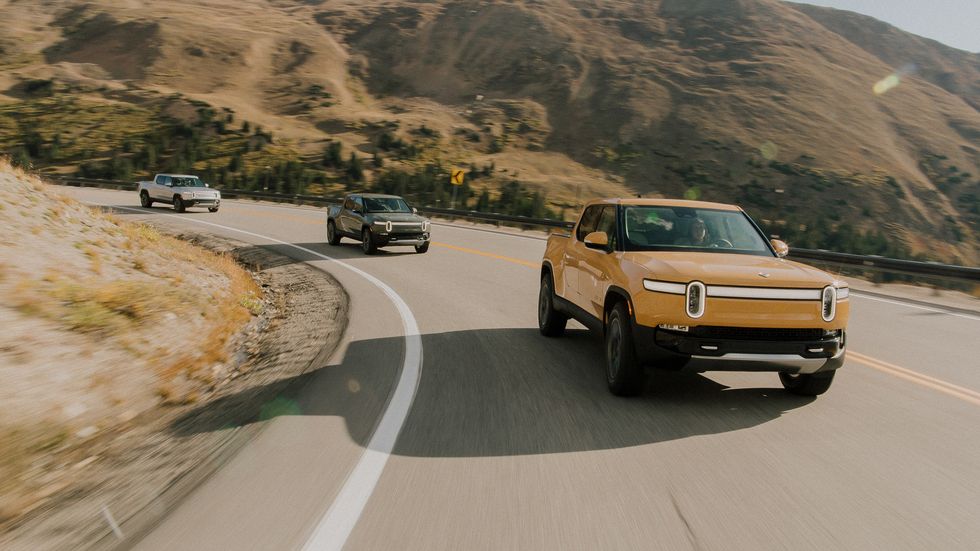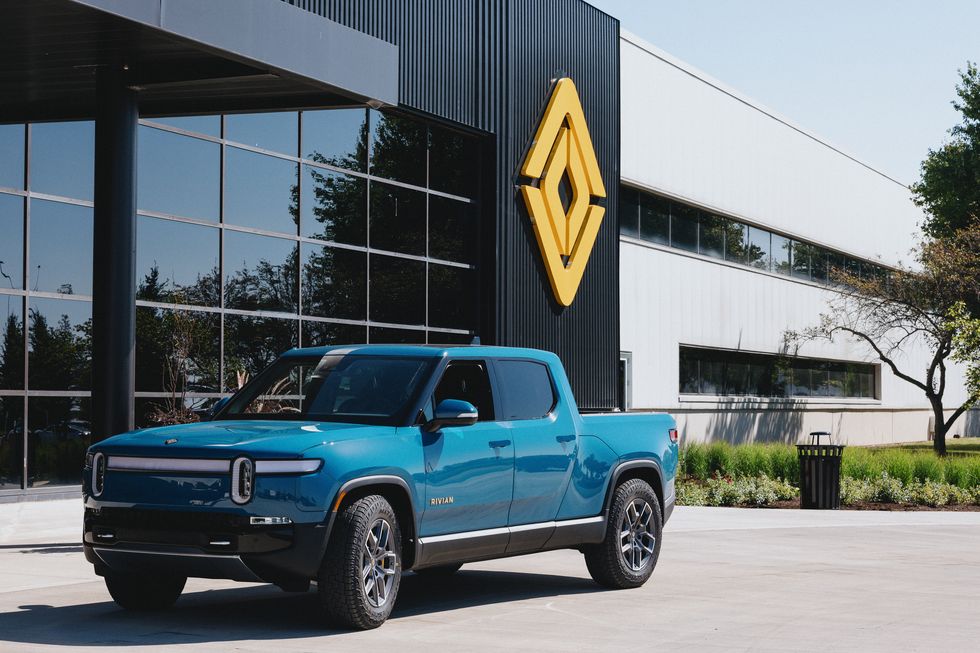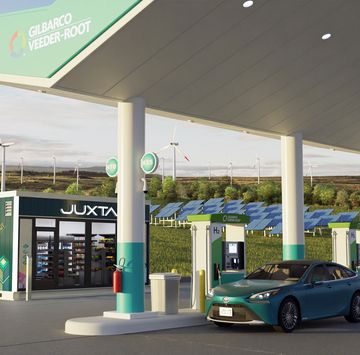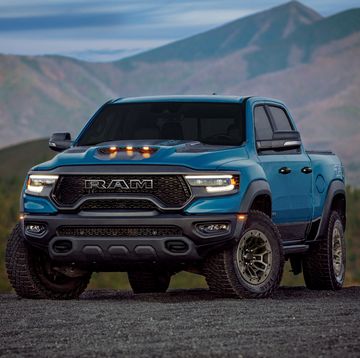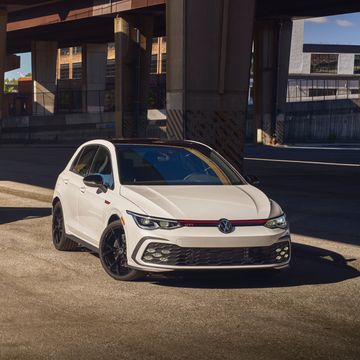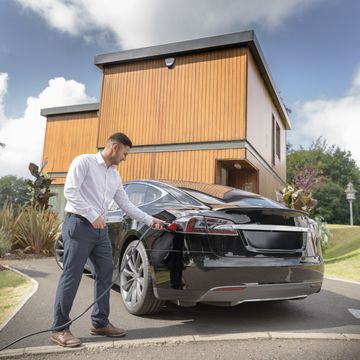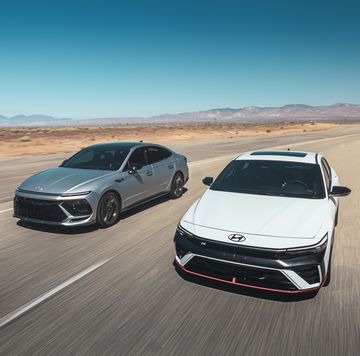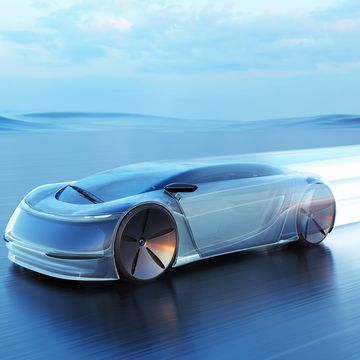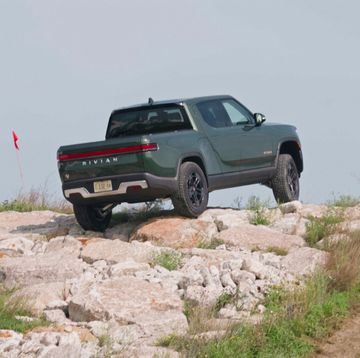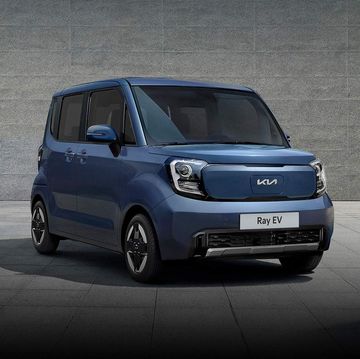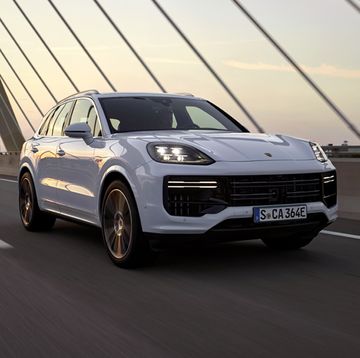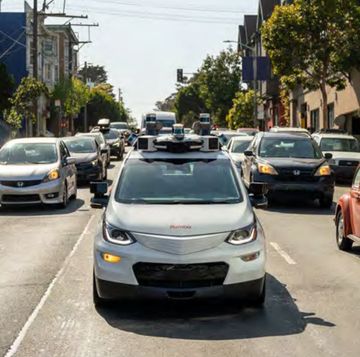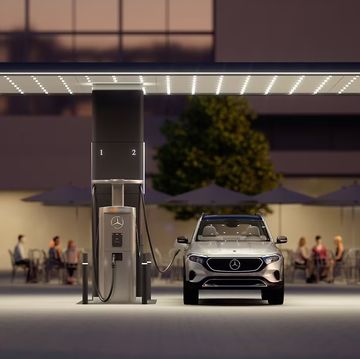- Owners of Lucid Motors and Rivian EVs have reported problems with their vehicles, both to NHTSA as well as online in owners’ forums.
- The problems range from seats that move on their own to complete bricking.
- Despite the problems, most owners express positive experiences with their vehicles—when they work correctly.
In an October complaint to the National Highway Traffic Safety Administration (NHTSA) a San Diego-based owner of an high-end Lucid Air electric car described a problem: “Vehicle sometimes drives in the opposite [emphasis in the original] of selected gear….Vehicle moves forward when in reverse….We could have easily hit a pedestrian.” He documented the problem in a YouTube video.
The owner said he’d notified Lucid of the problem through “all channels,” but had not heard back—though the situation may have been subsequently resolved.
Lucid and Rivian, both California-based but with factories elsewhere, are the two EV startups that many analysts think have the best chance of “doing a Tesla” and becoming established players in the international marketplace. It’s hard to do—before Tesla, there’d been no successful launches of a major American automaker since Chrysler in the 1920s. Both Tesla and Rivian have experienced bumps, including slow ramp-ups that are affected by the supply chain woes that have rocked the whole industry.
And customers have experienced glitches. There are 10 complaints at the NHTSA site for the Rivian R1T truck, but none for the R1S SUV. The R1S has two recalls, and the R1T three. The Lucid Air has three recalls and nine complaints.
Obviously, visits to just about any forum that track new car ownership will find problems, and all new auto manufacturers go through start-up woes. But some of the issues are far more than cosmetic.
A Lucid Air customer in Wright City, Missouri, informed NHTSA that the car’s seat “moved into the full forward and full-forward tilt position without warning, pinning my knees against the lower dash and my chest against the steering wheel.” The owner said that the malfunction fortunately happened in the garage, adding that if had happened on the highway, “I would not have been able to control the car. Car is currently not drivable.”
Another owner of a 2022 Lucid in Ambler, Pennsylvania, told NHTSA that while reversing out of his driveway, “the vehicle lost motive power and stalled.” The “Drive System Fault” message was displayed, and the customer could not restart the vehicle. After contacting Lucid, the system was reset and the car restarted, but the failure reoccurred. The car had 897 miles on its odometer.
In Rochester, Minnesota, an owner reported to NHTSA that the Lucid “lost all ability to move forward, except for a very weak crawl of one or two miles per hour. The car is with the manufacturer at this point.” The situation developed without warning in traffic. A reboot did not solve the problem, and the car was transported nearly 300 miles to the Chicago service center. The car operated normally before this problem developed.
The Lucid Owners Forum adds more issues. An owner named Lady V says she’s had 17 charging glitches, 14 of them during long trips of between 100 and 1000 miles. She said the vehicle had been to service centers in Millbrae and Torrance in California, Scottsdale in Arizona, and Seattle.
Chip Caldwell, a Tennessee resident who is chairman of Florida-based Caldwell Butler 2, describes having to have his “brand-new Grand Touring” model towed twice to the West Palm Beach, Florida, service center. In a telephone interview, Caldwell said that his car was having trouble both taking and retaining a charge. “I have documented an average of 55 percent of the range that the car tells me I have,” he said. “Because the battery is inefficient, if it says I have 350 miles, I actually have less than 200.”
Caldwell also says that fast charging his car took two hours and 35 minutes, when it should have taken 9.3 minutes, according to Lucid data. Like many Lucid owners, Caldwell says he loves the car when it’s working properly. “It’s a beautiful car,” he said. “Maybe two years down the road, the company will have ironed out the problems.”
Caldwell says Lucid’s customer representatives are great and helped him secure a rental car, but the service is an issue—his Air sat at a service center for more than two months. On December 29, he was told by the company that nothing wrong was found.
On February 10, Caldwell got the car back from the service center, but he insists he’s still having problems. He reports issues connecting to fast chargers, and a continuing inability to get more than 150 miles of range per charge.
Another poster, Stockacts, reports that the “freshly delivered Lucid Air Grand Touring has stopped accepting a charge. Not sure what went wrong—was working just fine until yesterday….Now my wife is upset and is second-thinking our purchase, which is a shame because we really enjoy the vehicle when it works. I’m hoping for a quick fix.”
Rivian, too, has reported issues. Ford said February 2 that it lost $2.2 billion in 2022, and wrote down its Rivian investment by $7.4 billion. Ford has sold most of its Rivian stake. Rivian has recently seen the departure of some key executives, including its vice president of body and interior engineering.
Rivian is doing well by other measures. According to Strategic Vision President Alexander Edwards, the R1T is “loved by buyers more than just about any other truck.” It also was the fourth “most satisfying” vehicle to own in Consumer Reports’ 2022 owner satisfaction survey. It was Motor Trend’s Truck of the Year for 2022.
Tesla has often scored similar results in satisfaction surveys—its owners are often inclined to overlook minor problems. And Rivian has these problems, too. An owner in Seattle told NHTSA that the R1T, in the “park” position, started moving backwards down a moderate slope. “I was able to reproduce this effect multiple times on similar slopes that day,” the owner said. “I would put the truck into park, it would be stable and stationary for one to two minutes. The steering wheel would then start to turn and the truck would start to move.”
In Pacific Palisades, California, an owner told NHTSA that the truck, without warning “suddenly stopped, and I was on one of the busiest streets in Los Angeles at an intersection, blocking a large amount of traffic and too dangerous to get out due to cars rapidly passing….I was at risk of being rear-ended.”
A San Jose, California, resident complained to NHTSA about the “cheap quality” of the roof glass, which developed cracks. “Initial point of crack could have been after I installed a bike rack with elbow resting on glass,” the resident said.
And a Murfreesboro, Tennessee, owner told NHTSA he finally located the cause of the R1T’s rattling passenger seat—a missing bolt in one of four attachment points.
On the Rivian Owners Forum, an R1T owner named battles2a5 described being “all excited to try out the snow mode” but found only the passenger’s door would unlock, and only with the physical key. “Once in, got every warning message in the book, including unsafe electrical issue. Won’t go in gear to respond to any commands. Completely bricked and it’s blocking our other cars in the driveway so we are stranded until the tow truck comes. So much for this adventure vehicle being built to handle anything.”
Also on the Rivian forum, an owner reported having the car break down on the first day. “I got my Rivian and on the same day while driving, heard roaring noise on all-purpose mode.” A notification said that AWD was not active and that the vehicle needed to go to service. “Beyond disappointment.”
Some owners are also reporting a “vampire” battery drain problem. Despite all this, Rivian—like Lucid—inspires intense loyalty from many of its early adopter clients. CNN reported that one owner, Denis Wang, was so enthralled with his R1T that he drove 45 minutes just to deliver a $100 gift card to the company “guide” who shepherded him through the truck purchase (and found a vehicle in just the right configuration).
Will these problems become chronic at Lucid and Rivian, or are they just startup glitches that the companies will soon put in the rear-view mirror? Some evidence supports the latter view. Certainly, Tesla had many similar growing pains.
For Autoweek, Rivian spokesperson Marina Hoffmann Norville addressed the company’s voluntary recall last October of a loose fastener in the vehicles’ front suspension, but not the posted NHTSA complaints. “Rivian has the capacity to inspect all affected vehicles and make any necessary repairs within 30 days, and that there is no cost to customers, nor is there any material financial impact to the company,” she said.
A Lucid spokesman said in a statement, “Lucid identifies and investigates concerns wherever they may be raised, and works with customers and regulators to take action when appropriate.”
Jim Motavalli is an auto writer and author (nine books) who contributes to Autoweek and Barron’s Penta. He has written two books on electric cars, Forward Drive (2000) and High Voltage (2010), and hosts the Plugging In podcast.
Motavalli’s writing has appeared in the New York Times, CBS Moneywatch, Car Talk at NPR, Forbes, US News and World Report, Sierra Magazine, Audubon, and many more. In his spare time, he reviews books and jazz.
